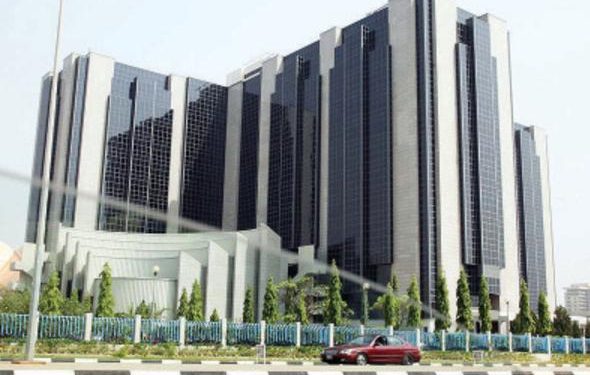Economists back unconventional policies for peculiar challenges
Conventional monetary policy dictates that tariff hike be used to ward off dumping of foreign made goods in the country, but in Nigeria, economic saboteurs have always circumvented checks, with attendant consequences on monetary policy and the economy at large.
Besides, since the global financial crisis, many central banks have begun to promote structural transformation and economic growth, beyond the singular mandate of price stability.
Consequently, policy toolkits now contain instruments that are aimed at developing the financial sector, engendering wider financial inclusion, and aligning financial policies with sustainable development and growth.
The Governor of the Central Bank of Nigeria (CBN), Godwin Emefiele, who made the observations in Ibadan, Oyo State, at the weekend, said the bank is now set to confront commercial banks that abate the misnomer, the companies, promoters and individuals working against established rules in its own way.
Delivering the Distinguished Leadership Lecture of the University of Ibadan, titled: “Up Against the Tide: Nigeria’s Heterodox Monetary Policy and the Bretton Woods Consensus”, he said that while the financial crisis challenged and exposed the shortfalls of conventional monetary policy, in Nigeria, unpatriotic behaviours heightened not only the development issues, but raised economic sustainability questions for the country.
Citing the country’s tariff hike and outright ban on tomato paste importations into the country, he said that it not only failed to earn the country import fees, but bred high-wired smuggling and suppressed homegrown initiatives on tomato production and queried what form of monetary policy tool could save the situation.
“How do we deal with these? Government bought hundreds of trucks for Customs to combat it, but corruption has prevented us from getting any result.
“Smuggling and dumping have done more harm to the nation’s economy as it impedes investment that would create the much-sought jobs and reduce poverty. Investors insisted that the problem of smuggling and dumping must be addressed for them to invest in the nation’s economy.
“This is because of lack of respect for our own economic policies. These acts create unemployment and poverty for our people and that is selfish,” he said.
Drawing a parallel in the new plan to deal with policy defaulters, he said that conventional policy would prescribe armed agencies to go after economic saboteurs, but in the bank’s own way, it will beam searchlight on their financial dealings with the goal of establishing their financing channels.
“Our argument for the unconventional monetary policy approach has always been that just like fiscal policy, the monetary policy could, at a time when development challenges abound, complement the efforts of the fiscal policy in employment generation, wealth creation and attainment of other growth objectives.
“If we find a company involved in smuggling, then we will use our own tools available to us to compliment the efforts of Nigeria Customs. Our instrument is to investigate the company’s transactions and if found involved in smuggling and dumping, we will deal with them.
“We will slam economic sabotage on them and use them as examples for others to learn to respect the economic policies of the country. We would close their accounts and order banks not to have dealings with them. Then, they will tell us how far they can go without the financial system.
“We want to create jobs for our people, we want our industries to come alive again and it will not fail because of the personal interest of the few,” he said.
According to him, balancing the objectives of price stability with output stabilisation, especially in the face of external headwinds, remains a challenge to monetary policy and central banks, particularly in emerging and developing economies.
“Before the onset of that crises, policymaking at central banks had been dominated by neo-liberal and orthodox doctrines, as promoted by key Bretton woods institutions like the International Monetary Fund (IMF). These tenets emphasized price stability as the sole and exclusive mandate of central banks.
“However, lessons learnt from recent crises, in addition to the global financial crisis, have raised doubts on the validity of this position. What became obvious, following the crisis is that conventional monetary policy tools were not sufficient in dealing with the complexities such as debt overhang and stagnating economic growth.
“The use of unconventional tools such as quantitative easing and forward guidance, led to a growth recovery in the US, as well as a reduction in the unemployment rate.
The CBN Act 2007, in recognizing this, provided the bank with the legal backing to undertake developmental functions that are consistent with price stability. This has enabled the Bank to simultaneously promote the development of financial markets and stimulate the growth of the real sector.
The Chairman of the occasion, Prof. Sam Olofin, while commending the various policies of CBN, agreed that Nigeria cannot afford to follow fully the orthodox path to get result without recourse to homegrown solutions, which deals with peculiar homegrown challenges.
“Our undue reliance on orthodox has hindered our development. For us to develop, we must be willing to pay the price of going against the tide when necessary, ” he said.
The Vice Chancellor of the university, Prof. Idowu Olayinka, appreciated the efforts of CBN under Emefiele, which had helped in repostioning the nation’s economy, particularly the demand management approach the supported the price stability.
Olyinka extolled the bank’s stride in increasing the interventions to agriculture and manufacturing sectors, particularly, the Anchor Borrowers Programme, Commercial Agricultural Credit Guarantee Scheme and the Real Sector Support Fund, which were part of the conventional and unconventional policies aimed at stimulating growth in the ailing economy.
“We therefore, advise that adequate monetary policy, event if it contradicts the Betton Woods consensus, be implemented,” he said, to address the peculiar challenges of the country.










